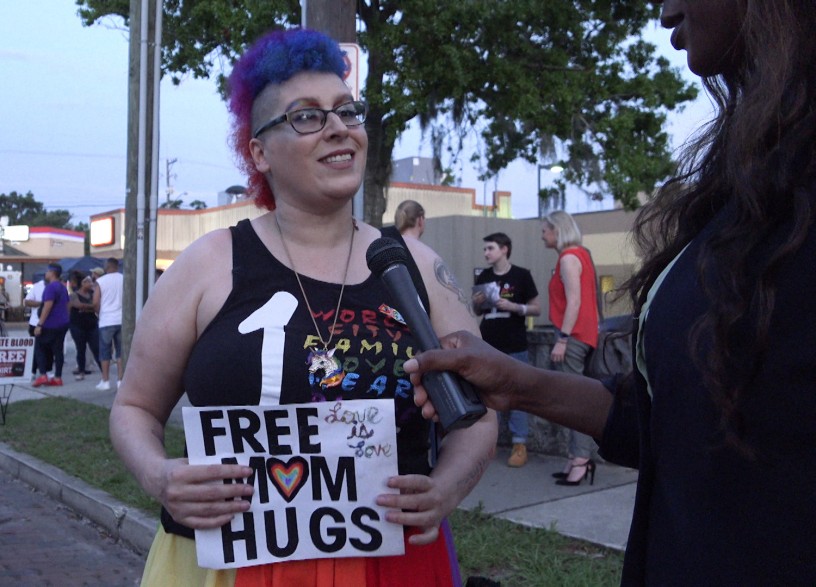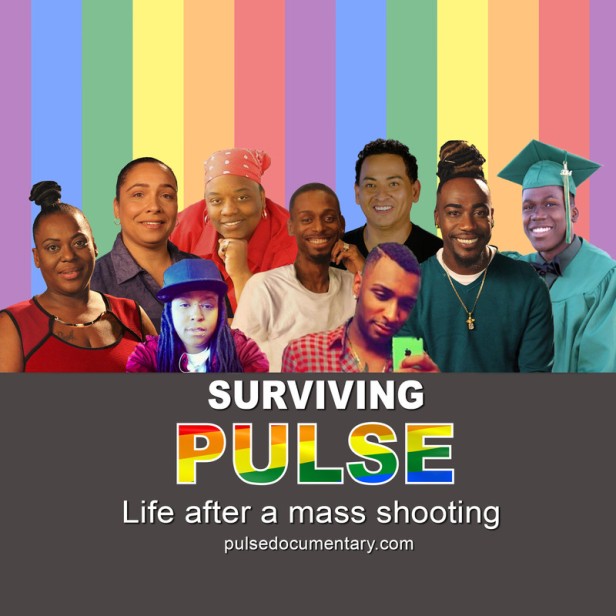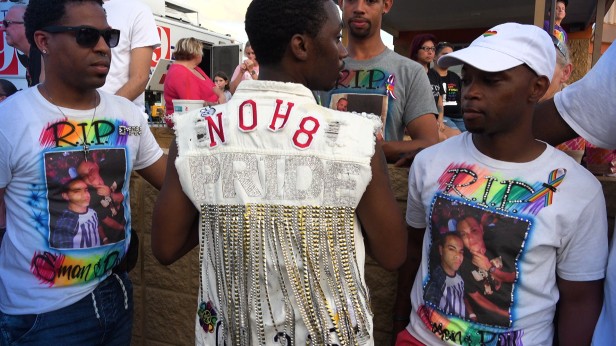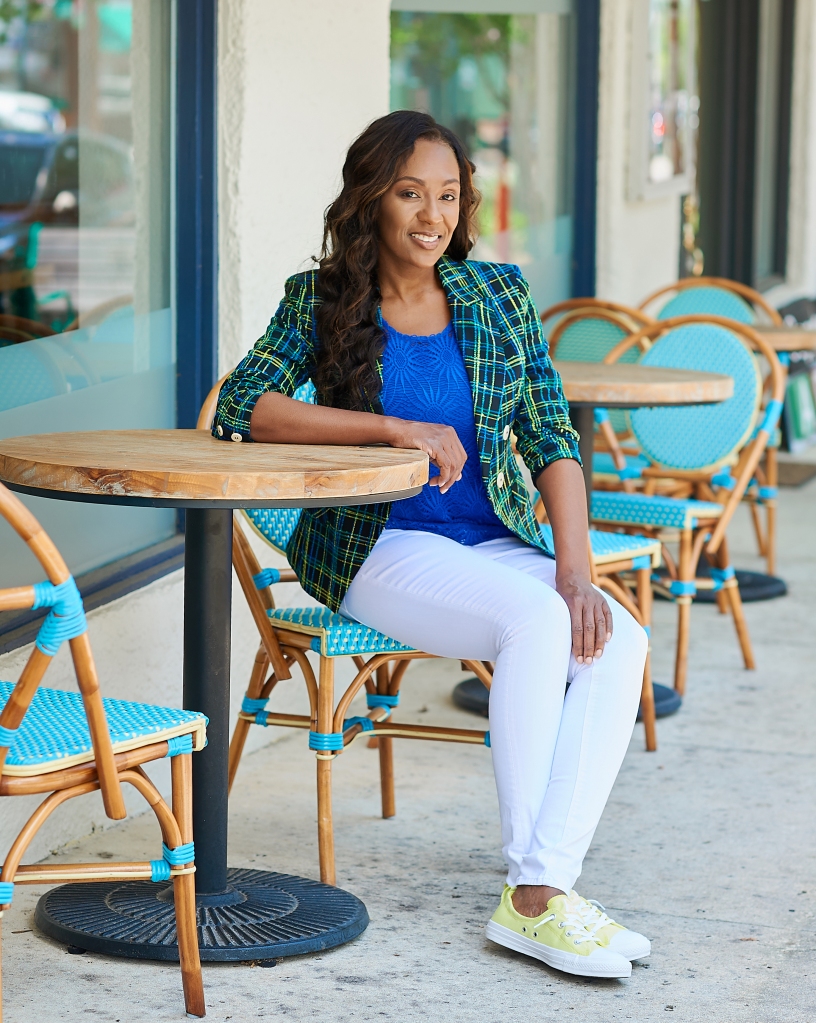By Daria Trifu, Editor-in-Chief
On March 26, I had the pleasure to interview Aleesha Yates, who was personally affected by the tragedy of the hateful act of violence that occurred on June 12, 2016.
Before sharing my interview with Aleesha, I would like to introduce the context in which we arrived at this conversation:
In 2022, the featured documentary Surviving Pulse: Life After a Mass Shooting, produced by Nancy McBride and directed by Alexa Sheehan from the USA, was selected at the Global Nonviolent Film Festival, and it went on to win the Best Feature Documentary award.
In an article published in Daria! Magazine in 2022, Will Espero, former State Senator from Hawaii, writes: “The film tells of a celebratory evening at an Orlando nightclub where people were free to be themselves, express their identities, and feel completely included and welcomed.” On June 12, 2016, “the Pulse nightclub was sponsoring Latino Night when a lone gunman entered the LGBTQ club and began shooting. By night’s end, 49 innocent victims were killed, and the shooter was eventually shot dead by police. The surprise attack and deaths to follow are detailed and explained as the disease of gun violence continues its toll in America.”
In the aftermath, the survivors are involved in or consumed with PTSD, guilt, anxiety, fear, community dialogue, advocacy, and forgiveness. The need for political representation and a champion for the LGBTQ constituency and community is highlighted [in this documentary], indicative of the need to create a united front and voice,” concludes Espero.
“As we interviewed the survivors over the months and years following, we found that the survivors of mass shootings have a very trauma-specific journey that needed to be shared,” says Alexa Sheehan. She continues, “These amazing people have endured, fought, and persevered in telling their stories as exclusives. We hope we have helped them be heard, and we are honored for them to allow us into their lives as an unconventional vehicle towards healing. They never asked to be survivors.”
I begin my interview with Aleesha Yates by asking her how she become involved, and what role she played in the production of the documentary.
I am the silent, hidden secret who brought the story to Nancy Mcbride after I discovered that there were survivors who had not received any recognition or compensation. These victims were completely ignored and forgotten by the community, and they had no voice. I found it my duty to help my community tell their stories because the media completely ignored the fact that there was more than just the Latino community present that was affected by this tragedy.
My role in the Surviving Pulse documentary was originally slated to be that of the on-screen narrator of the entire documentary, but it was decided by the producer that I would interview the cast off-camera to provide more focus on their individual stories.
In my role, I crafted all the thought-provoking questions that brought this story to life. I interviewed the survivors, I assisted in the original casting process of the documentary, and I served as a bridge between the black LGBTQ community and the producer and director since they had no knowledge or access to the black LGBTQ community.
I am the bridge to this story that was able to mesh two completely different worlds together. I was there from the very beginning. This project is the result of my courage to reach out for help in order to help others. This entire story came from my heart to Nancy McBride’s ears and was brought to life by the talented Alexa Sheehan.
What motivated you to want to document the immediate aftermath and the journey to recovery of some of the survivors of this tragic event?
I was motivated to document the survivor’s stories because they deserved to be acknowledged and assisted. My concern was to get them financial assistance and the counseling that they needed.
I am a member of the black and Latino community, and I was a patron of Pulse Night Club and understood I too could have been a victim, but by chance and divine intervention, I did not make it to the club that night.
My goal was to help my community have a voice and let the world know they exist, that they are hurting, and that they did not receive the help that was promised and granted to many of the Orlando LGBTQ community. They were not included in the memorials or the national news media around the world. It was important for their stories to be told so that the world was aware that Pulse was for everyone and was never a Latin club; it just so happened that the massacre took place on a Latin night but people of many different races attended and lost their lives.
How was the documentary received locally, and by the members of the LGBTQ community and their families who were the most affected?
The documentary was well received by the community, and it really touched the hearts of many. A lot of people who were not part of the LGBTQ community were shocked and touched by the film. The LGBTQ community had mixed reactions because many of them were still traumatized by the tragedy. Most of them lost loved ones or were survivors of the tragedy, and thus, many could not mentally support the film. Everyone who has seen the documentary was touched by the heart-wrenching stories and felt compelled to ask how they could help the survivors.
It has been almost eight years since the devastating event. Has the local community been able to rebuild its strength and hope for a better, kinder, and safer future for all?
The Orlando LGBTQ community has never been the same and has never really recovered from the tragedy. Many of the survivors still have not received any counseling or financial support, so they are still suffering.
The Pulse mass shooting has mentally impacted all of us so heavily that most of us still live in fear. We have not recovered, and things will never be the same.
Our hope for a better, safer future is somehow nonexistent. We have been left broken and on edge, constantly on high alert. Though we all hope for a brighter future, we live in the constant harsh reality of facing our own mortality. We now know that at any time or place, our lives can be changed forever. We have learned to never feel safe anywhere and to hope for the best but prepare for the worst. The strength of our community lies in our will to live. We are still here, and we exist, and we can only hope to see the future. D!
The 2024 edition of the Global Nonviolent Film Festival will run from September 26 to October 7. The festival is hosted by GlobalCinema.online, a VOD streaming channel available worldwide that showcases non-violent films and documentaries. The films selected at the festival receive a distribution contract proposal from Global Cinema Online, in addition to international publicity, magazine articles, IMDB listings, award certificates, daily video presentations throughout the 11-day event, laurels, and more.
Film submissions are open on FilmFreeway. Narrative, documentary, docudrama, animation, and experimental films, as well as music videos, are welcomed. Films depicting current or historical events of a violent nature, such as wars, as well as films depicting traumatic events, are accepted. The films submitted must not showcase extreme or graphic acts of violence that are gratuitous.




Comments are closed.